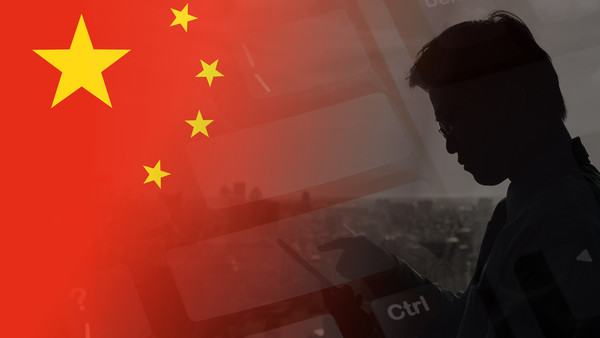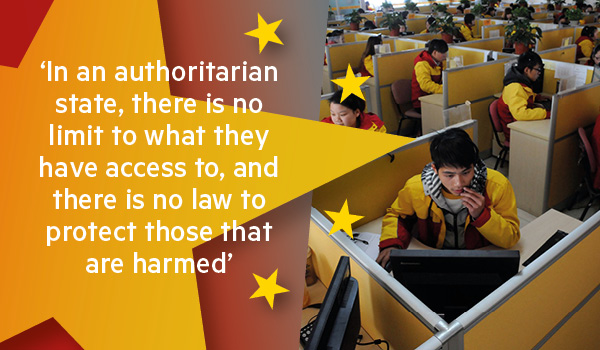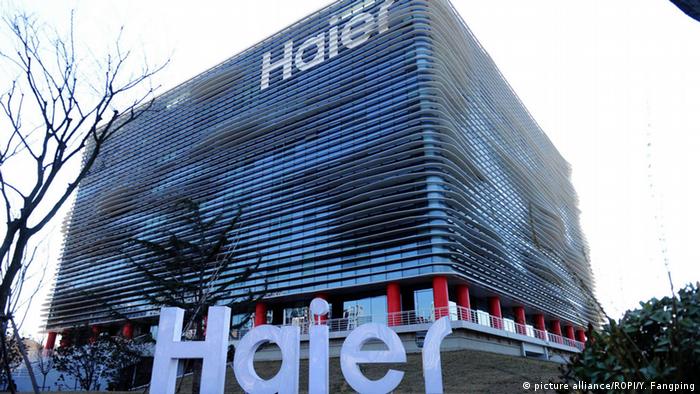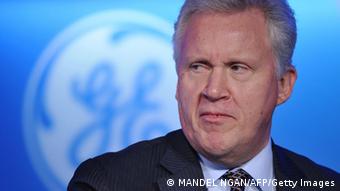“The general directions of Digital Transformation are clear to all of us. The successful implementation of Digital Transformation throughout the organization is far more complex.” -- The Wharton School's Eric Clemons
廣告
2016年1月29日 星期五
2016年1月27日 星期三
{政府交接法制化之研究}、政黨輪替與政府體制永續發展論壇 綜合座談
中華民國行政院研究發展考核委員會也在2002年8月發表:{政府交接法制化之研究},舉凡美、法、德、日、俄諸國的交接經驗與制度都有專章介紹。
------
日、美、法三國政權移交經驗與政權交接監督委員會
政黨輪替與政府體制永續發展論壇 綜合座談
政治中心/綜合報導 2016-01-25 17:50

政黨輪替與政府體制永續發展論壇,綜合座談。(郭文宏攝20160123)
《民報》與台灣亞太發展基金會、台北青商基金會聯合舉辦「政黨輪替與政府體制永續發展論壇」,其中綜合座談在探討最近引來議論的總統交接問題。2011年馬英九總統堅持將總統與立委大選日期合併為同一日,造成2016年總統大選日至新總統就職日間長達四個月的政府空窗期。本次座談邀請四位學者根據日本、美國、法國的政權交接經驗,對台灣總統職務交接所帶來的啟發與借鏡。
文化大學黃美惠教授分享日本政黨輪替的經驗,她表示,日本在2009年首度達到實質上的政黨輪替,但是新執政的民主黨內各派閥因各自政治計算而內鬥不斷,最後放棄成立政權交接小組,日本就在缺乏交接經驗及明確規範下,僅靠著優秀的基層公務員完成政權交接,但這也讓選民看出民主黨無心於政事,導致該黨三年後喪失政權再度淪為在野黨。
黃美惠教授認為日本政黨派閥鬥爭,造成政黨輪替時沒有法條或交接小組可以依靠,台灣應記取教訓(郭文宏攝)
黃美惠指出,國民黨早在2005年即在立法院提出《總統副總統職務交接條例》草案,並在2008年進入二讀,但被民進黨以交付黨團協商為由擱置。國民黨與民進黨在2011年各自提出相關草案,台聯接著在2014年提出台聯版的《總統職務交接條例》草案,但是這些草案全都被擱置,2015年台聯與民進黨提出的交接條例草案遭到國民黨連續退回程序委員會達27次,可見台灣各黨都知道要建立制度,只不過台灣和日本一樣,政治人物們為了各自的政治計算而擱置草案。所以黃美惠認為我們最好記取日本的教訓,台灣的立委諸公還是少點政治計算,讓立法過程更加透明,不然連總統交接法制化都做不到,更別談民主深化。
新台灣國策智庫林廷輝副執行長說,美國國會在1963年制訂《總統交接法》,歷年來美國前後任總統即是根據這法律進行交接,為期約二個半月。而法國政權交接制度較為簡單,總統交接十日內即完成,總理交接則是二日內完成。法國另有獨立的三個檔案管理局管理政府檔案,不受一般行政部門管轄,在檔案法保護下,法國政府施政經驗得以傳承,也有利新舊政府交接。
「參考美國與法國的交接經驗, 台灣總統從大選日到就職日間長達四個月實在不妥」,林廷輝根據智庫內部研究結論指出,想要讓政權順利交接,就要有健全的交接相關法律規範,就算立法程序緩慢,在沒有法條可參考之前也應先擬訂「政權交接標準作業程序」,以利政權交接。同時接任者應盡速掌握業務重點,立即進入狀況。
張旭成教授提到美國總統當選人會成立「總統交接小組」(PTT)到政府各部門作業。(郭文宏攝)
前駐外代表張旭成教授分享美國某前任官員參與美國總統交接的經驗,他表示美國總統當選人一經當選,馬上就會成立「總統交接小組」(Presidential Transition Team,PTT)在政府各部門運作,以期能在二個半月內完成交接,這種交接小組也有預警作用,能夠防止卸任的總統或官員暴衝亂來傷害新政府。
張旭成指出,除了政府要建立制度,其實民間團體或社會大眾也應成立諸如「公民監督聯盟」等民間組間,以免立法院議事效率不彰或舊政府官員亂來,這既是監視執政黨也是監視在野黨。美國視台灣為重要盟國,所以最近已經密切關注台灣總統交接。
中央大學法律與政府研究所所長陳英鈐教授表示,政權交接應該注意三個事項:人事、程序、政策。只要掌握這三項,政權交接就會順利。
陳英鈐說明全球三種主要的政權交接模式,分別是:
♦內閣制
以英國為代表,是最容易的政權交接模式,國會各在野政黨本身就有影子內閣,一旦執政馬上就能與原執政黨無縫接軌。
♦半總統制
以法國為代表,還算容易的交接模式,因為總統交接只要更換約800名官員,所以十天內即能交接完成。
♦總統制
以美國為代表,最不容易的交接模式,新總統上任前要擬定8000名應任命的官員名單,交接期最長可達二個半月。
陳英鈐指出,如果想解決四個月空窗期,有三種可能的解決方式。
1.請辭
現任正副總統請辭,由新總統接任提早就職,但是牽涉到憲法條文規定,請辭有一複雜程序,幾乎不可能實現。
2.共治
國會多數黨組閣與舊總統聯合共治,但是根據法國與烏克蘭的經驗,這種解決方式只會使新閣揆與舊總統間權責不明,讓政局更加混亂。
3.法制化
也就是國會通過交接條例,並依法成立交接監督委員會,這是目前最可行的解決方案。但還要考慮政黨杯葛程序或舊總統退回法案,那麼立法就會遭到延宕。
康寧祥董事長認為,政黨惡鬥與民眾輕忽是造成空窗危機的原因。應該立法建立制度,有制度才能深化民主
座談主持人康寧祥總結時表示,從幾位專家學者的講解,可以發現其實總統交接這個議題早在2005年到2015年就已經在立法院討論過甚至提案過,但是各政黨為了自身利益而互相傾軋阻擋立法,所以藍綠雙方不用急著把責任推到對手身上。除此之外,民眾也應該要檢討,正由於大眾對這種提案興趣缺缺,才會放任藍綠雙方擱置法案這麼多年,等到真正需要時已經來不急了。
「其實美國與法國有多年政權交接相關經驗可供參考,如果台灣民眾與政治人物肯多注意他國經驗,那麼現在的總統交接問題根本早就解決了」,康寧祥指出,既然台灣已經有專家學者整理日、美、法三國政權交接資料,那麼國民黨與民進黨就不可再用需要時間研究做藉口,兩黨應該根據現有資料,修改過去的交接條例草案,然後趁新國會開議加速立法通過。
2016年1月25日 星期一
秀傳總裁黃明和A藥價差8.2億
秀傳總裁黃明和A藥價差8.2億 繳千萬緩起訴
彰化秀傳醫療體系總裁黃明和、大女兒黃靖媛、三女兒黃意婷、財務副處長胡玉美等,涉嫌私設人頭公司買進藥品,再轉賣給秀傳體系醫院賺價差8.2億,涉嫌背信、業務侵占等罪嫌,但考量多年來花在建設醫療集團的費用不貲,且事後切結不再犯並承諾支付處分金,彰化檢方今天偵結緩起訴處分。
2016年1月20日 星期三
China: When big data meets big brother
Companies are using online activity to determine credit ratings adding to fears about privacy

hen browsing the internet in China, be sure to avoid logging on between 2am and 4am, steer clear of websites offering quick loans and beware of changing your mobile phone handset too often. A good rule of thumb is to order curtains for your office, and when shopping online, choose scuba gear over photographic equipment.
The reason? All of these choices may be affecting your credit rating. And your credit rating, as determined by a number of experimental algorithms being tested by China’s largest internet companies, may one day affect a lot more than your ability to get a loan — some believe it could determine your access to health, education, employment and status as a “good” citizen.
More
ON THIS TOPIC
- Xi turns to Reagan for economy inspiration
- Markets Insight China’s credit binge is the real concern
- China plans to ease rules on car market
- Inside Business Hopes yet resignation in China SOE reform
IN THE BIG READ
Sign up now
FirstFT is our new essential daily email briefing of the best stories from across the web
The new rating systems are part of a government-backed effort to increase lending to hundreds of millions of Chinese who want access to small business loans or consumer credit, but have no collateral or financial history.
To address this, companies offering everything from business loans to credit with retail stores are relying on “non-traditional” indicators such as internet search histories and mobile phone purchases to help determine who is creditworthy. Private corporations admit they can access the records of Chinese internet users thanks to licences issued by the central bank last year to develop experimental credit ratings.
So far, eight licences have been issued to companies ranging from Tencent and Alibaba, two of the biggest internet conglomerates, to Ping An Insurance, one of China’s largest insurers.
These credit scores are becoming the gateway not just to loans, but to an increasingly wide range of non-financial activity. A higher rating can give you access to the fast lane in airport security, swifter approval of foreign visas or even help in adopting a pet.
A separate initiative by Beijing intends to use algorithms on all this data to rate not just citizens’ creditworthiness, but their overall “honesty” and “trustworthiness”, by as early as 2020.
So far, the government’s efforts are largely theoretical. No one knows exactly what the new models will look like or what variables will be employed. An opaque draft of the plan says the intention is to “use encouragement to keep trust and constraints against breaking trust as incentive mechanisms,” and spells out the objective to raise “the honest mentality and credit levels of the entire society”.
Wang Zhicheng, a professor specialising in credit risk at Peking University’s Guanghua School of Management, says the project is borne out of a “crisis in ethics” in today’s China. “People don’t think that credit or integrity is important,” he says. “That is what the [broader state] system is intended to do — raise the cost of unethical behaviour.”

However, he says, rating people on their big data may not turn out to be easy — China’s internet is rife with fake data, profiles and transactions.
“China has a long way to go before it actually assigns everyone a score. If it wants to do that, it needs to work on the accuracy of the data. At the moment it’s ‘garbage in, garbage out’.”
Lab rats
Critics say China’s internet is fast becoming a laboratory where big data meets big brother, where the march of technology combined with profit-driven private companies, authoritarian politics and weak civil liberties is creating a toxic cocktail. If unchecked, the “social credit” system, according to some, could be used to assign citizenship scores to everyone based on “patriotic” criteria such as whether they buy imported products, or the content of their postings on social media.
Anne Stevenson-Yang, head of J Capital Research, a Beijing based consultancy, says the system appears to be aimed at a key goal articulated by President Xi Jinping of fostering greater social control and public morality.
In a research note, she argues that the goal of “social credit” scoring is to return China to levels of personal surveillance common between the 1950s and the 1970s, when everyone had files maintained by their work units under Mao Zedong’s regime, and busybodies in every neighbourhood kept authorities informed of the minutiae of daily life.
Greater mobility and decentralisation mean that the country’s “dangan” system is no longer the complete cradle-to-grave record it once was, but the big data being gathered by the leading internet groups on China’s web users, which numbered 668m according to the government’s latest estimate last year, may turn out to be a close substitute.
Harvesting this data has become a priority for Beijing. Local district administrations have set up “data co-ordination bureaux” aimed at being “a combination of post office and data pool”, according to the state-run Xinhua news agency, where dozens or even hundreds of databases are centralised.
“I think there is a sense in [the Chinese] government that all this data is being generated on people’s mobile phones ... and smart watches and the government thinks ‘Hey, I want some of that’,” says Rogier Creemers, a lecturer on Chinese politics at Oxford university.

Government security agencies already have a vast array of internet censorship and surveillance apparatus known as the “Great Firewall”, which monitors and blocks social media posts about ethnic troubles in the northwestern province of Xinjiang, or the 1989 Tiananmen Square massacre.
Mr Creemers insists it is too early to judge the new “social credit” system that appears to combine mass surveillance with algorithms aimed at establishing correlations between social behaviour and internet data. He says it is unclear whether there is any link between the government’s project and the experimental private sector credit rating efforts under way by Alibaba’s Sesame Credit and Tencent.
‘Good people’
There are many questions about what goes into the private credit scores. China Rapid Finance, a peer-to-peer lender which calculates credit ratings using Tencent data, says it uses online purchasing data to determine creditworthiness. According to its scoring system, scuba gear is good, while photography equipment is bad. The smartphone app for Alipay, Alibaba’s payments affiliate which runs Sesame Credit, tells users that the airline tickets they buy or hotels they book online influence their score. In addition, it says “we will consider your overall influence in your social connections circle and the credibility of your friends” in determining the score, which goes up to 900.
A spokesperson for Ant Financial, Alipay’s parent, denies that a friend’s rating will “impact your own Sesame credit score”. But a senior figure at a second Chinese internet company indicates that an individual’s online links are fair game in rating users.
“We can assume good people are friends with good people,” says a senior figure at a Chinese internet company, when asked to explain the credit rating algorithms, “and credible people are friends online with credible people”.

The lack of public information on the private companies’ credit rating algorithms has aroused the curiosity of analysts, who question whether the systems will be any good at their primary purpose — predicting defaults.
“When I say credit rating, I think of the ability to repay a loan. Some of these companies seem to see the goal as more broadly defining the character of their users,” says Mark Natkin, head of Beijing -based Marbridge Consulting.
Mr Creemers says the credit rating system represents a melding of two
utopian visions: that of Silicon Valley and that of the Chinese Communist party.
utopian visions: that of Silicon Valley and that of the Chinese Communist party.
“The Chinese government, Chinese internet companies and Silicon Valley seem to share a commitment to paternalistic improvement of the human condition,” he says, citing a quickly expanding literature epitomised by Nudge, the 2008 book that argues technology can create largely undetectable incentives for people to improve.
“In both Silicon Valley and in Beijing, there is this notion that we can use technology to shape and reshape incentives in such a way that people will behave better. And ‘we’ get to decide what we mean by better,” he says.
Melding pot
China’s social credit system, argues Mr Creemers, is an extreme example of what starts when a smartphone rewards its owner for taking the stairs instead of an elevator, or users rate others to become a “trusted reviewer” on the travel website TripAdvisor.
China is not alone in wanting to tap into the surveillance power of the internet. The 2013 revelations of Edward Snowden, the US whistleblower, exposed the involvement of American companies and intelligence agencies in programmes that gave the government access to personal data. US credit rating agencies have experimented with using internet data as indicators — such as where someone shops — that according to some have become akin to the outlawed practice of “red lining” borrowers according to their neighbourhood.
The growing distrust of Google, Facebook and other tech groups in the west highlights the unease surrounding the amount of personal data these companies hold . In China, the merger of big data and big brother is even more ambitious, say analysts, taking place in a legal vacuum and by an authoritarian state with no civil protections on privacy.
“On the outside this system may seem like a way to promote trust and credit worthiness and is supposed to be progressive,” says Hu Jia, a Chinese activist and dissident. “But in an authoritarian state, there is no limit to what they have access to, and there is no law to protect those that are harmed.”
Some of the companies involved — many with global reputations to protect — are taking precautions. One executive from a company that received a credit rating licence says frankly: “There is no clear regulation in China yet [about the] kind of data a private corporation can access and what you cannot use.”
The executive says his company has access to a vast trove of mobile phone records as part of a partnership with Chinese telecoms groups, and faces no legal restrictions on their use. But he says the company has chosen not to collect this data due to internal concerns over privacy.
“The standard we apply is more strict than some of our competitors,” he says.
Zhao Zhanling, a Beijing lawyer who specialises in intellectual property and privacy rights, says the law is full of holes — regulations governing the creation of private credit rating systems include a list of data for which consent is required, but it does not clearly define “personal information”and there is no law about what “consent” means online.
Even the stewards of China’s big data revolution appear nervous about the implications of their plans. Wang Xiaolei, deputy director of the People’s Bank of China credit rating centre, which is set to manage the new “social credit” system, was quoted by Xinhua last year decrying the lack of legal protection on personal data in China.
“Think about it: personal information would be floating around all over the place, and the individual would be uninformed about any of it,” she says. “Wouldn’t that be quite scary?”
Additional reporting by Ma Fangjing
Rules for the web in China: avoid browsing late at night, do order curtains for your office, and when shopping, opt for the scuba gear over camera equipment.
Why? It all has to do with your credit rating.
Companies are using online activity to determine credit ratings adding to…
ON.FT.COM
The Onion worth more than the Washington Post
The Onion worth more than the Washington Post
BLOOMBERG
NEW YORK – The Onion’s top news, circa 2013: “Print Dead at 1,803.” On Tuesday, it helped put the nail in the coffin.
The satirical news site just agreed to sell a chunk of itself (as well as sister properties including ClickHole and The A.V. Club) to Spanish broadcaster Univision Communications. The reported price tag of about $200 million for a 40 percent stake in the Onion’s parent company values the whole enterprise in the range of $500 million.
To put that in perspective, it’s twice what Jeff Bezos paid for the Washington Post in 2013. You read that right: The Onion — whose top stories on Tuesday included “NCAA Investigating God For Giving Gifts To Athletes” and “Average Male 4,000% Less Effective In Fights Than They Imagine” — garnered a higher valuation than the Washington Post did. And the storied Financial Times isn’t worth all that much more, having agreed to sell itself last year to Japanese publisher Nikkei for $1.3 billion. The Boston Globe? Forget about it. The paper (and affiliated media assets) sold for a mere $70 million back in 2013.
The numbers make more sense though when you consider the eyeballs these different media properties attract. The Onion’s collection of sites draw in more than 25 million monthly unique users each month. The Financial Times has around 740,000 subscribers in print and online. The Washington Post hadn’t yet adopted a digital subscription model at the time of Bezos’ purchase, but weekday circulation stood under 500,000. The Globe was working with less than 250,000 including digital editions, at the time of its sale. On those grounds, perhaps the Onion is getting shortchanged.
But the bigger takeaway is the shift in readership preferences. The satirical news site represents a new kind of media. The onetime newspaper discontinued its print operations in late 2013 and focused its efforts on the digital side of its properties. The company’s focus on sarcastic humor, meanwhile, puts it in league with popular programming such as Comedy Central’s “The Daily Show” and HBO’s “Last Week Tonight,” setting it apart from the traditional news publishers whose shares have suffered lately:
In those respects, it’s easy to see the appeal for Univision, a broadcaster perhaps better known for its dramatic soap operas. Univision is trying to tap into the fickle millennial audience and nothing rings truer with that crowd than sarcasm. From The Onion’s perspective, teaming up with a bigger and better-funded media company will give it the resources needed to grow. Print may be dead but the jokes will live on.
2016年1月19日 星期二
leadership requires an expansive worldview and a deep appreciation of the many points of intersection between business and society
UNIVERSITY | SOM donation endows deanship
“My gift to this wonderful institution pales in comparison with the gift that Yale gave me — the fundamental understanding that leadership requires an expansive worldview and a deep appreciation of the many points of intersection between business and society,” Nooyi said in a press release.
“My gift to this wonderful institution pales in comparison with the gift that Yale gave me — the fundamental understanding that leadership requires an expansive worldview and a deep appreciation of the many points of intersection between business and society,” Nooyi said in a press release.
On Tuesday, the Yale School of Management announced a donation from Indra Nooyi SOM ’80, chairman and CEO of PepsiCo, Inc. The gift makes Nooyi the most generous alumni donor to the SOM.
YALEDAILYNEWS.COM
臉書祖克柏開會管理兩招
臉書祖克柏這兩招
精華簡文

怎麼辦到的呢?桑德伯格認為有兩大關鍵。
首先,「祖克柏會要求要參與會議的人,預先繳交開會資料,」因此會議時間真的是拿來討論的,而不是拿來看資料的。
第二,「坐下開會前,一定要有很清楚的目標:我們聚集在會議室,究竟是為了要做決定,還是只是要討論。」
儘管,這兩大關鍵聽起來並不特別,但卻獲得許多專家認同 - See more at: http://www.cw.com.tw/article/article.action?id=5073978&utm_source=Facebook&utm_medium=Social&utm_campaign=Daily#sthash.U7uzVJOm.dpuf
荷蘭Wiki City 的規劃方式等:荷蘭式參與文化
內有荷蘭Wiki City 的規劃方式介紹
【經典.TV】20160103 - 荷蘭式參與文化
https://www.youtube.com/watch?v=-hqZxKWonDk國民黨政府還沒進入看守期,就開始「善後」了:忙著照顧自己;忙著照顧自己人
馬總統說要把組閣權提早交給蔡英文,這真是笑話。
其實國民黨政府還沒進入看守期,就已經開始「善後」了。
這兩個月來,不只一位事務官出身的政務官,趕快降級回去佔事務官的缺,再繼續再借調」回原機關當政務官。
例如:勞動部政次陳益民、陸委會政務副主委吳美紅,都是比照簡任14職等的政務官。最近居然先去佔行政院13~14職等顧問缺,再借調回勞動部、陸委會繼續擔任次長、副主委。
勞動部主秘鍾錦季,也去佔參事缺,然後回來「代理」主任秘書。
行政院長毛治國堅持走人。但他離開前,也先拿走勞動部的一個參事缺。
原來是要安插他院長室的一位陳姓幕僚。
有人忙著照顧自己;也有人忙著照顧自己人。
2016年1月18日 星期一
蘇花改從2011年開工至今
今晚十點播出!
蘇花改從民國100年開工至今,因為路線變更,環境影響評估差異分析又重新做了三次,當初急速通過,事後再來修改,如今又遇上遺址問題。
當初的快給民意暫時交代,卻留給工程更多後續難題。如今主管機關得拿出擔當,謹慎對待漢本遺址的價值,在文化資產與工程進度間,做出取捨…
當初的快給民意暫時交代,卻留給工程更多後續難題。如今主管機關得拿出擔當,謹慎對待漢本遺址的價值,在文化資產與工程進度間,做出取捨…
張岱屏、陳忠峰 / 採訪報導 這片史前聚落,層層疊疊,埋藏在最令人最驚訝的所在。工程壓力,讓考古工作,背負延宕通車的罪名。當蘇花改遇上漢本遺址,進行到一半的工程,該如何繼續?…
PNN.PTS.ORG.TW
2016年1月17日 星期日
蘋論:競選六張牌
蘋論:競選六張牌
當年選舉公然買票,還造冊逐一發錢、開票時若對國民黨不利,開票員(公務員)會拇指沾印泥弄髒支持對手的選票而宣布廢票、實在不行了,開票開一半就關掉電源宣布停電,然後趁機換票、或藉口投票偏遠地區來不及開票,明天再開,趁晚上開櫃換票,有一次換得太匆忙,一大捲假選票還綁著繩子被當眾拿出來,也沒事。如果講這些故事給首投族年輕朋友聽,他們一定以為是笑話、是捏造的,不可能真有其事。政黨進化不屑抹黑
1996年以來,我們的選務有著長足的進步,中選會盡量做到公平、公正,使得人民可以信任選舉的結果,對維護政治和社會的安定居功甚偉,我們要向他們鼓掌致敬。
候選人及政黨的進化是選務進步的另一個因素。像這次的選舉,很多候選人自我控制良好,不屑抹黑、造謠、耳語、尖酸,就是很大的進步。「時代力量」的黃國昌說,他們互相約束,絕不惡言回覆抹黑造謠,並且絕不打什麼告急牌、搶救牌,令人耳目一新。
候選人及政黨的進化是選務進步的另一個因素。像這次的選舉,很多候選人自我控制良好,不屑抹黑、造謠、耳語、尖酸,就是很大的進步。「時代力量」的黃國昌說,他們互相約束,絕不惡言回覆抹黑造謠,並且絕不打什麼告急牌、搶救牌,令人耳目一新。
KUSO搞笑創意十足
台灣傳統選戰最喜歡打6張牌:
恐嚇牌──選了某黨、某人,就是選擇戰爭或中華民國滅亡云云,朱立倫陣營這次大量打出恐嚇牌,有用嗎?阿扁做了8年,中華民國滅亡了嗎?
悲情牌──訴說自己的委曲,哽咽哭泣,再不靈就下跪磕頭,如喪考妣,目的在爭取同情。這招一度很流行,現在已經很少人用了。
告急牌或搶救牌──利用選民的同情心大打告急牌,要人家來搶救他。這招現在還有人用,不過逐漸不靈。
抹黑牌──很多人相信此招有效,但選民越來越不埋單,效用遞減,除非證據確鑿。
酸人牌──講些尖酸刻薄的話或在網路上KUSO對手,網友喜歡用這招,有的很有才氣十分搞笑(例如配音希特勒),創意十足,但有的尖酸損人,就流於低級。
平心而論,這次民進黨的選舉風度高於國民黨,是值得鼓勵的。以前從黨外到民進黨初期,民進黨候選人在人單勢孤,欠缺糧草(競選經費)的壓力下,經常打出悲情牌、告急牌,也講一些粗俗尖刻的話;可是現在民進黨已經穿上西裝,表現的風度格調逐漸超過宮廷身段的國民黨候選人。這就是進步,政黨素質的提升是民眾最高興看到的。
2016年1月15日 星期五
Walmart to close 269 stores this year 海爾54億收購通用電氣家電業務
MONEY.CNN.COM|由 DAVID GOLDMAN 上傳
海爾54億收購通用電氣家電業務
中國家電業巨頭海爾集團週五宣布了收購美國通用電氣集團家電業務的決定。這是在中國企業海外併購熱潮中的又一筆大宗交易。
(德國之聲中文網)據美聯社報導,作為全球最大的家電生產商,中國海爾集團將收購通用電氣(General Electric Co.)的家電業務以擴大其在美國和全球市場的佔有率,交易價格為54億美元。
這一收購決定在周五正式宣布,目前海爾正在試圖轉型成為一個高端品牌。而通用電氣正在將重心從傳統業務領域(包括家電)轉向尖端技術領域,比如醫療設備和清潔能源。
兩家公司還就建立戰略性夥伴關係達成了協議,未來將在網絡、醫療和先進製造技術領域展開合作。雙方表示,這一收購交易仍有待通過相關國家的反壟斷審批。
這已經是本週之內宣布的第三宗交易金額超過10億美元的中國企業海外併購案。週二,萬達集團宣布以35億美元的價格收購好萊塢傳奇影業(Legendary Entertainment)的決定。而就在前一天,國有的中國化工集團收購了德國特種機械製造商克勞斯瑪菲(KraussMaffei),交易價格約合10億美元。
中國企業正處在海外併購熱潮之中,它們尋找的目標是可以幫助其提高在國內競爭實力以及擴展全球市場份額的技術和品牌。
總部位於青島的海爾集團在全球設有21個工業園區,其主打產品包括冰箱、洗衣機等其它家用電器。2014年,該集團總營業額達到326億美元。
海爾方面表示,這次的收購交易將由青島海爾股份有限公司出面完成。海爾集團在該上市公司中持有41%的股份。
通用家電總部位於美國肯塔基州的路易維爾,2014年公佈的總營業額為59億美元。該集團擁有1萬2千名僱員,其中96%在美國境內。
收購交易雙方表示,在併購完成之後,通用電氣的家電產品將獲得更多進入中國消費市場的機會。交易內容還包括通用電氣在墨西哥家電公司Mabe所持有的48.4%股份。這兩家公司已經以合資方式運營長達28年時間。
"這是雙方戰略合作的新起點,相信雙方的全面戰略合作必將為兩家公司的利益攸關方帶來更高的價值",海爾集團董事長張瑞敏表示。
"海爾目前已經明確聚焦於在美國市場的發展,在這裡建立生產基地,並且進一步加大投資",通用電氣CEO伊梅爾特(Jeff Immelt)在一份聯合聲明中表示,"此外,我們認為雙方的合作有利於通用電氣的品牌在中國擴大知名度。"
通用電氣此前曾經宣布要將其家電業務以33億美元出售給瑞典的伊萊克斯(Electrolux)。但是在去年12月,這一收購案又被叫停,原因是美國反壟斷機構對此提出異議。
2016年1月11日 星期一
蘋論:政府空窗期不應太長
蘋論:政府空窗期不應太長
總統大選日與新總統就職日長達4個多月並不妥當,似乎已是全國各政黨的共識。為什麼不修改日期?不是把大選日延後,就是把就職日提前,修改《選罷法》有那麼困難嗎?這個問題已經爭吵多年,為什麼僵滯不動,每4年吵一次?
這個議題已經拖延多年,以致於當年(2012年)為什麼修法把大選日從三月提前到元月份,而就職日(五月二十日)卻不改的原因都忘記了。陰謀論傳說一月份是大專院校的期末考日,較親綠的大學生選民無法返鄉投票,對泛藍的政黨大為有利;而三月剛過完農曆年,回台過年的台商才剛回中國崗位,不便馬上又要回台投票,而台商多數支持泛藍,特別是國民黨,所以一月投票對台商較為方便。我們不願相信這樣的陰謀論,但實在不解為什麼投票日改到一月而不提前就職日。
若有戰爭誰來領導
兩個日期相距4個多月容易產生四大憲政爭議:1.舊總統仍有《憲法》權力制定與執行新政策,4個月時間足夠做出很多新總統就職後難以挽回的政策,哪個總統須為此負責?2.新總統擁有最新民意,正當性最強,沒有理由讓舊民意的舊總統仍在位那麼久,有侵蝕新總統正當性之虞。
3.新國會監督新總統乃順理成章的搭配,美國新國會任期從元月三日中午開始,而新總統就職日是元月二十日中午(美國1932年修憲將新總統就職大典從三月四日改為元月二十日,以縮短空窗期),使新國會可以馬上監督新總統,政府可以立即運作。4.舊總統看守時間過長,4個月政府空轉擺爛無法立即按新政策運作,尤其若發生急難事件如戰爭、大天災、經濟恐慌等,應由新舊哪個總統負責領導?
3.新國會監督新總統乃順理成章的搭配,美國新國會任期從元月三日中午開始,而新總統就職日是元月二十日中午(美國1932年修憲將新總統就職大典從三月四日改為元月二十日,以縮短空窗期),使新國會可以馬上監督新總統,政府可以立即運作。4.舊總統看守時間過長,4個月政府空轉擺爛無法立即按新政策運作,尤其若發生急難事件如戰爭、大天災、經濟恐慌等,應由新舊哪個總統負責領導?
政黨杯葛顯得自私
此外,還有總統及政府交接事項和看守政府的行為準則,都應在立院新會期間完成立法。美國1963年通過《總統移交法案》,授權總務署主管政權轉移的工作,即可作為修法的參考。國、民兩黨不應杯葛這些法案,因為政黨輪流執政已成常態,誰都可能在野、誰也都可能執政,互相掣肘杯葛,只顯示出人格的卑下自私。
2016年1月10日 星期日
披薩誕生地聖維塔利亞諾,禁止披薩店等使用沒有配備過濾裝置的爐子
台北市溫州公園旁的才柴燒披薩店的居民抗爭故事:約十年前起.....
The New York Times Chinese -Traditional 紐約時報中文網
為減少空氣污染,披薩誕生地聖維塔利亞諾發佈了一項法令,禁止披薩店等使用沒有配備過濾裝置的爐子,引發軒然大波。市民很惱火:「我們竟然被拿來和中國相比。」
「我成了敵視披薩的市長,」法爾科內懊惱地說道。他還說,自己這麼做只是為了聖維塔利亞諾的最佳利益。「我要為這座城市裡居民的健康負責,我們總要先從某個地方着手。」
CN.NYTIMES.COM
蔡懿倫:教數字總統看(出國人數)數字
教數字總統看數字
蔡懿倫/財團法人青平台基金會、慕哲社會創新研究中心研究員
航點增便利性提高
訂閱:
文章 (Atom)
Blogs by Hanching Chung
網誌存檔
-
▼
2016
(309)
-
▼
1月
(29)
- Digitally Transforming the Firm: New Strategies,
- {政府交接法制化之研究}、政黨輪替與政府體制永續發展論壇 綜合座談
- 秀傳總裁黃明和A藥價差8.2億
- China: When big data meets big brother
- The Onion worth more than the Washington Post
- leadership requires an expansive worldview and a d...
- 臉書祖克柏開會管理兩招
- 荷蘭Wiki City 的規劃方式等:荷蘭式參與文化
- 國民黨政府還沒進入看守期,就開始「善後」了:忙著照顧自己;忙著照顧自己人
- 蘇花改從2011年開工至今
- 台北市的停車位資訊系統
- 蘋論:競選六張牌
- Walmart to close 269 stores this year 海爾54億收購通用電...
- 蘋論:政府空窗期不應太長
- 披薩誕生地聖維塔利亞諾,禁止披薩店等使用沒有配備過濾裝置的爐子
- 蔡懿倫:教數字總統看(出國人數)數字
- 蘋論:多數黨組閣是來亂的;國會多數組閣狂想曲
- 無知 :中國、台灣的股市監管單位;美國農業部和衛生部
- The effective engineer:讓「Noogler」快速成為公司的人才
- Nike永遠是(NFL)贏家
- Coca Cola's New Year ad upset Russia and Ukraine 多...
- 李惠仁:開始亂搞了:農委會是這樣,其他部會亦然!
- 蘋論:對貪官奸商太寬容
- 日本麥當勞推限定福袋
- 中華電信的客服電話
- 5000億軍宅大方送 眷改條例玄機處處 國庫成冤大頭 暗藏更多不公不義
- What makes a good life? Lessons from the longest s...
- Starbucks Prospers by Keeping Pace With the Coffee...
- 柯文哲:失言; 奇怪的策略準則
-
▼
1月
(29)









